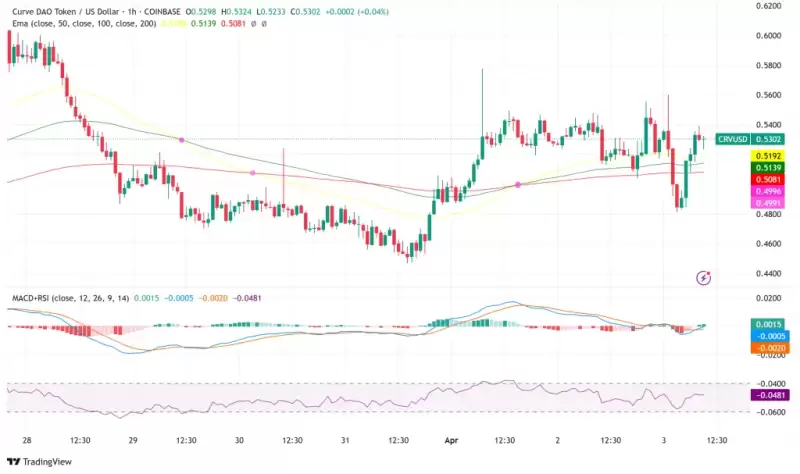 |
|
 |
|
 |
|
 |
|
 |
|
 |
|
 |
|
 |
|
 |
|
 |
|
 |
|
 |
|
 |
|
 |
|
 |
|
Cryptocurrency News Articles
$20 Million Sonne Finance DeFi Hack: Vulnerability and Exploitation Unraveled
May 16, 2024 at 06:18 pm
A sophisticated crypto attacker exploited Sonne Finance's VELO integration with the Optimism network, draining approximately $20 million from the company over a two-day period. By manipulating the "c-factor" in the protocol, the attacker leveraged rounding errors to borrow a significant amount of funds using minimal collateral. The successful hack highlights the importance of thorough code audits and robust security measures in decentralized finance environments.

Unraveling the Staggering $20 Million Sonne Finance Hack: A DeFi Odyssey of Vulnerability and Exploitation
In the annals of decentralized finance (DeFi), the recent hack of Sonne Finance stands as a sobering reminder of the potential pitfalls lurking within the burgeoning realm of blockchain technology. A cunning attacker, exploiting a complex vulnerability, managed to siphon approximately $20 million from the company's coffers, casting a shadow over the industry's security landscape.
The Path to Compromise: A Multi-Layered Attack
The attack played out over several days, with the attacker meticulously targeting the backdoor of Sonne Finance's integration with the Optimism network. This integration, designed to enable VELO transactions on the network, had culminated in a series of transactions orchestrated through the company's multi-signature (multi-sig) wallet.
The multi-sig wallet, however, featured a built-in security measure: a two-day time lock. This delay was intended to provide an additional layer of protection by ensuring that transactions would not be executed immediately.
A Stealthy Maneuver: Exploiting the "c-Factor"
With the two-day lock period nearing its end, the attacker made a seemingly innocuous move: they transferred a minuscule amount of VELO (0.400000001 wei) to mint a mere 2 wei. This transaction, however, became the catalyst for the subsequent exploit.
Unraveling the System's Imbalance
The newly minted soVELO, a derivative token, borrowed a significant amount (35,469,150 VELO) from the AMM liquidity pool. However, surprisingly, this transfer did not result in the minting of additional soVELO tokens, creating a significant imbalance. The total liquidity in the system surged, while the total supply of soVELO remained unchanged at a mere 2 wei.
Leveraging this imbalance, the attacker skillfully exploited a rounding error in the division calculations. This error allowed them to borrow a staggering 265 wei of Wrapped Ethereum (WETH) with just two wei of soVELO as collateral.
A Cascade of Drained Assets
The attacker's exploit did not end there. They continued to manipulate the system, draining assets from various sources. The stolen assets included a substantial amount of VELO, WETH, USDC, WBTC, wstETH, and USDT.
A Wake-Up Call for DeFi Security
The Sonne Finance hack exposes a fundamental flaw in the DeFi ecosystem: the need for rigorous code auditing and robust failsafe mechanisms to protect digital assets. The success of the attack, stemming from a seemingly minor rounding error, underscores the importance of thorough security measures.
Organizations operating in the DeFi space must prioritize the implementation of stringent security protocols, including frequent code auditing, real-time monitoring, and comprehensive risk assessments. Only by embracing a proactive approach to security can the industry mitigate the risks and ensure the long-term viability of DeFi.
Disclaimer:info@kdj.com
The information provided is not trading advice. kdj.com does not assume any responsibility for any investments made based on the information provided in this article. Cryptocurrencies are highly volatile and it is highly recommended that you invest with caution after thorough research!
If you believe that the content used on this website infringes your copyright, please contact us immediately (info@kdj.com) and we will delete it promptly.
-

- Pi Network Price Crashes Hard as Binance Skips the Token in Its Latest Vote to List Initiative
- Apr 03, 2025 at 03:00 pm
- Pi Network supporters are once again left frustrated as Binance skips the token in its latest Vote to List initiative. This marks the second time the world's largest exchange has ignored Pi, shutting down hopes of an imminent listing.
-

-

-

-

-

-

-

- Bitcoin (BTC) ETF Inflows Have Surged Again as Investors Ignore Trump's Reciprocal Tariffs
- Apr 03, 2025 at 02:45 pm
- Inflows into spot Bitcoin ETFs have surged once again as investors chose to look past the Trump reciprocal tariffs. The net inflows across all US ETFs for Bitcoin stood at $220 million
-

























































